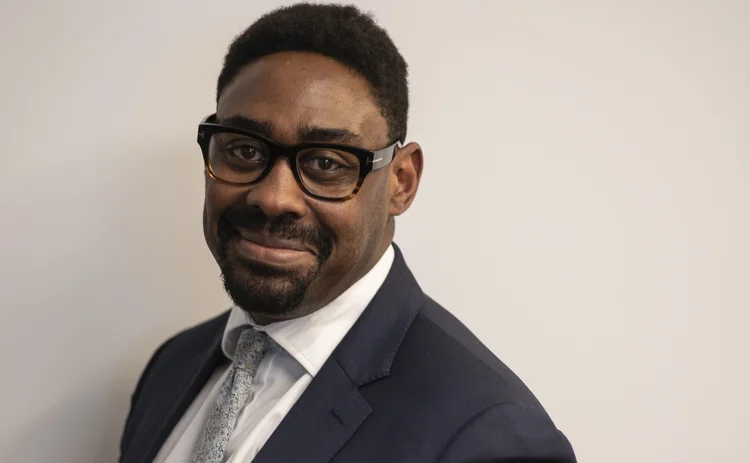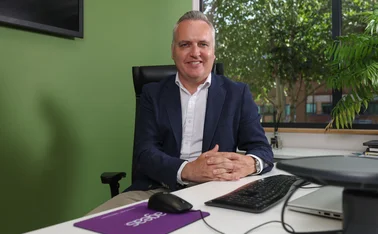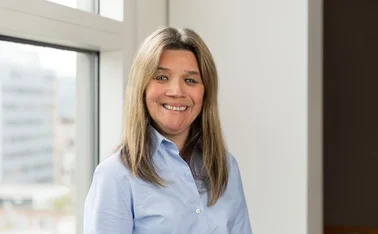
RSA's David Germain on keeping up with technology

Insurance has a long history but as David Germain, chief technology officer for RSA, explains, the sector still needs to keep up with technology.
Technology has the power to change lives and transform businesses yet, somehow, the insurance sector is still struggling to get to grips with it.
Much has changed since the advent of the Tower Street coffee house, the Great Fire of London and Lloyd’s of London’s loss book. As one of the most historical and deeply traditional industries, we need to work harder to understand, and implement, the best that modern technology has to offer.
Artificial intelligence, for example, could help us price risk more effectively, leading to more sophisticated and bespoke underwriting, while video conferencing and drones have the ability to make assessing and paying claims much slicker.
More accurate risk pricing and swifter claims payments aren’t the only ways technology can make the lives of our customers easier. The use of appropriate tech can help improve the way the industry interacts with customers, with chatbots fielding simple, more transactional customer enquiries, while human staff deal with the more complex questions over the phone or face-to-face.
Meanwhile, technology could also be used to help us reach the millions of people across the globe who cannot afford to protect themselves, their belongings or their businesses. Using mobile phones, insurers are creating micro-insurance policies that can help the farmer who needs to protect their crops during the dry season or the student who needs to cover their laptop during term-time when their parents’ home contents policy is not in force.
We also need to understand technology so we can assess the impact on the lives of our customers. What impact will driverless cars have on our motor insurance customers? What does the increasing use of smart home devices mean for the cyber security of our home insurance policyholders? Can the use of pet health tracking devices help us lower premiums? As an industry we need to understand the answers to these, and many other questions, to ensure we can continue to do what we are famous for – assessing and accurately pricing risk.
Accumulating and analysing data will form a significant part of this, but it can take time to accurately evaluate risk. So how do we reach our goal more quickly? Yes, we are making some strong strides but how do we ensure we are ahead of the curve? How do we make the most of our technological future? The answer may be a simple one - talk to the experts.
As an industry, we should share our expertise in risk management with those who know the direction technology is taking and understand how it might change the world. We need to work closely with insurtech partners that really understand customer centricity and are not burdened with our legacy systems. If there is a new system or service that we cannot build in-house, there should be no shame in picking it up off the shelf.
Yes, we are an industry with history and tradition but we must also embrace change. The world around is rapidly evolving and we must do all we can to keep up with it.
The possibilities for our business – and most importantly our customers – are endless.
Only users who have a paid subscription or are part of a corporate subscription are able to print or copy content.
To access these options, along with all other subscription benefits, please contact info@postonline.co.uk or view our subscription options here: http://subscriptions.postonline.co.uk/subscribe
You are currently unable to print this content. Please contact info@postonline.co.uk to find out more.
You are currently unable to copy this content. Please contact info@postonline.co.uk to find out more.
Copyright Infopro Digital Limited. All rights reserved.
As outlined in our terms and conditions, https://www.infopro-digital.com/terms-and-conditions/subscriptions/ (point 2.4), printing is limited to a single copy.
If you would like to purchase additional rights please email info@postonline.co.uk
Copyright Infopro Digital Limited. All rights reserved.
You may share this content using our article tools. As outlined in our terms and conditions, https://www.infopro-digital.com/terms-and-conditions/subscriptions/ (clause 2.4), an Authorised User may only make one copy of the materials for their own personal use. You must also comply with the restrictions in clause 2.5.
If you would like to purchase additional rights please email info@postonline.co.uk








